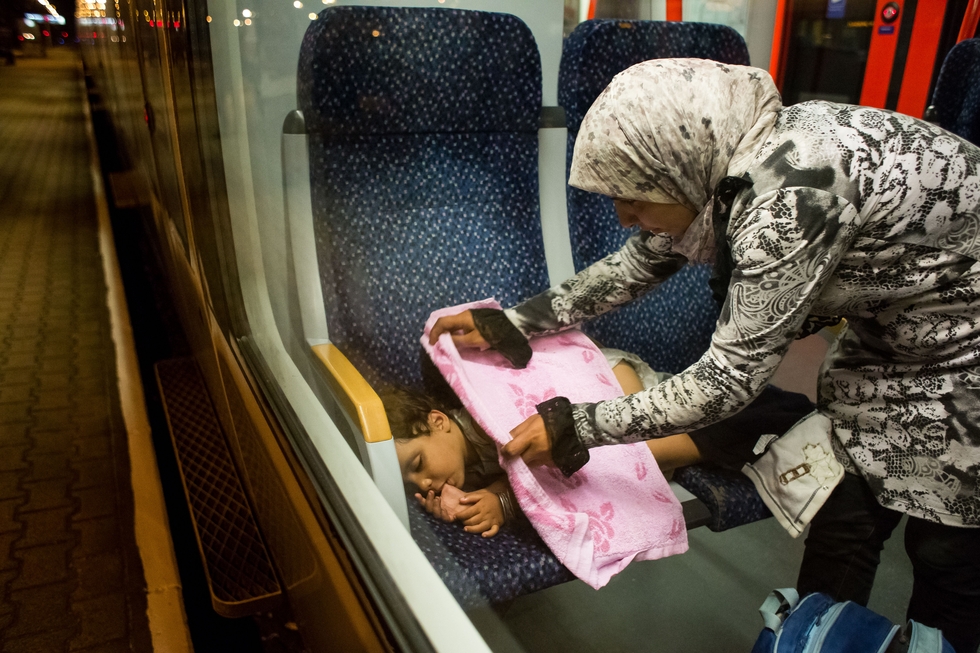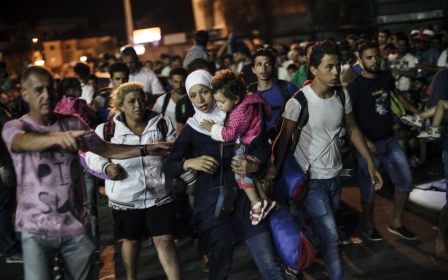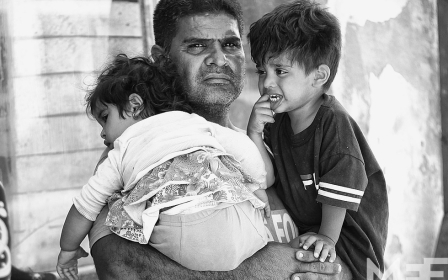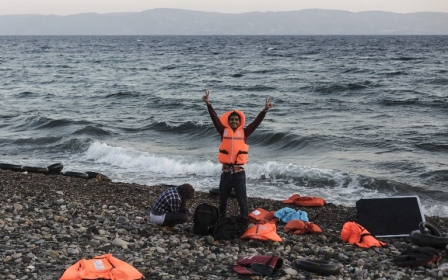Video shows Austrians offering food and water to refugees on a packed train

A video was posted to Facebook on Monday that showed people at a train station in Austria handing out food and water to refugees travelling to Germany.
The 90-second video shows people pushing trolleys filled with essential supplies down a platform in the Austrian city of Salzburg.
As a train pulls into the station, coming from Hungarian capital Budapest heading for Munich, refugees are seen jumping onto the platform and taking much-needed food and water from the trolleys.
Thousands of people arrived in Austria and Germany on Monday after Hungarian authorities allowed refugees to leave, despite many not having European Union visas.
Police in Munich on Tuesday thanked Germans for their kindness in bringing gifts for the arriving refugees, but asked that no more be brought to the city's train station as they were being overwhelmed.
Translation: We are overwhelmed by the many supplies that residents of Munich have brought to the station for refugees. Please do not bring anymore things.
Europe is on the receiving end of the biggest movement of people since World War II, with more than 300,000 arriving this year, many fleeing war, persecution and poverty in the Middle East and Africa.
The escalating refugee crisis has divided the EU ahead of fresh emergency talks on 14 September, with Western European leaders calling for more efforts to help the new arrivals while countries on its eastern borders say they are struggling to cope.
New MEE newsletter: Jerusalem Dispatch
Sign up to get the latest insights and analysis on Israel-Palestine, alongside Turkey Unpacked and other MEE newsletters
Middle East Eye delivers independent and unrivalled coverage and analysis of the Middle East, North Africa and beyond. To learn more about republishing this content and the associated fees, please fill out this form. More about MEE can be found here.




